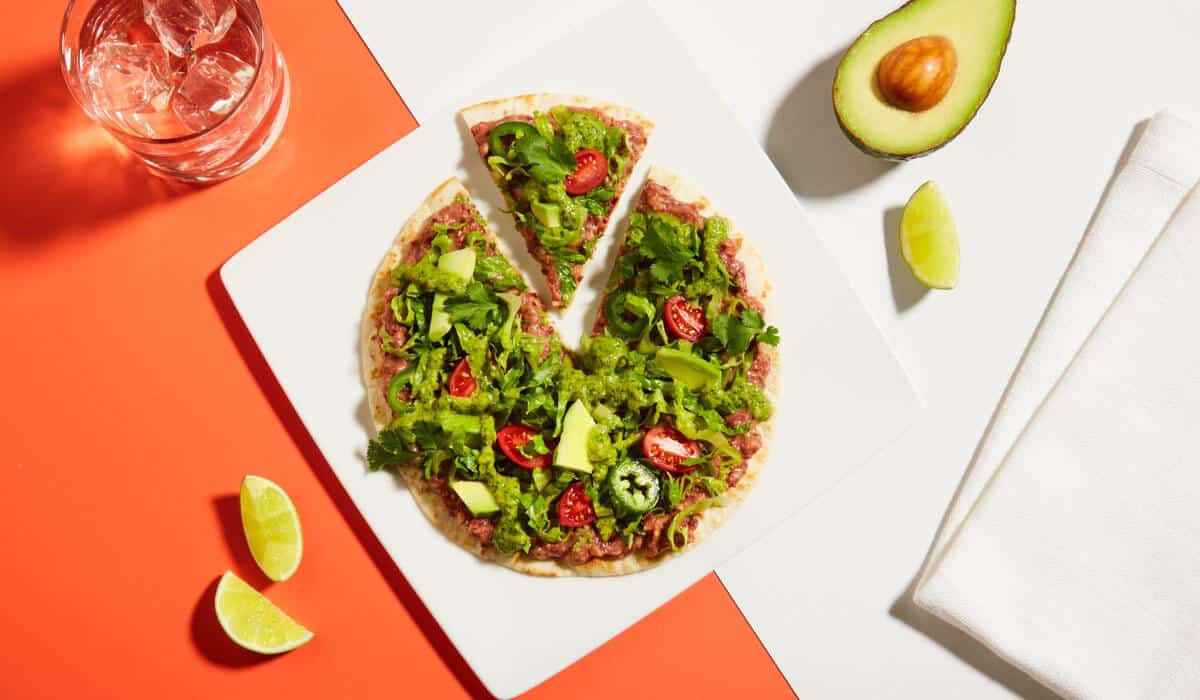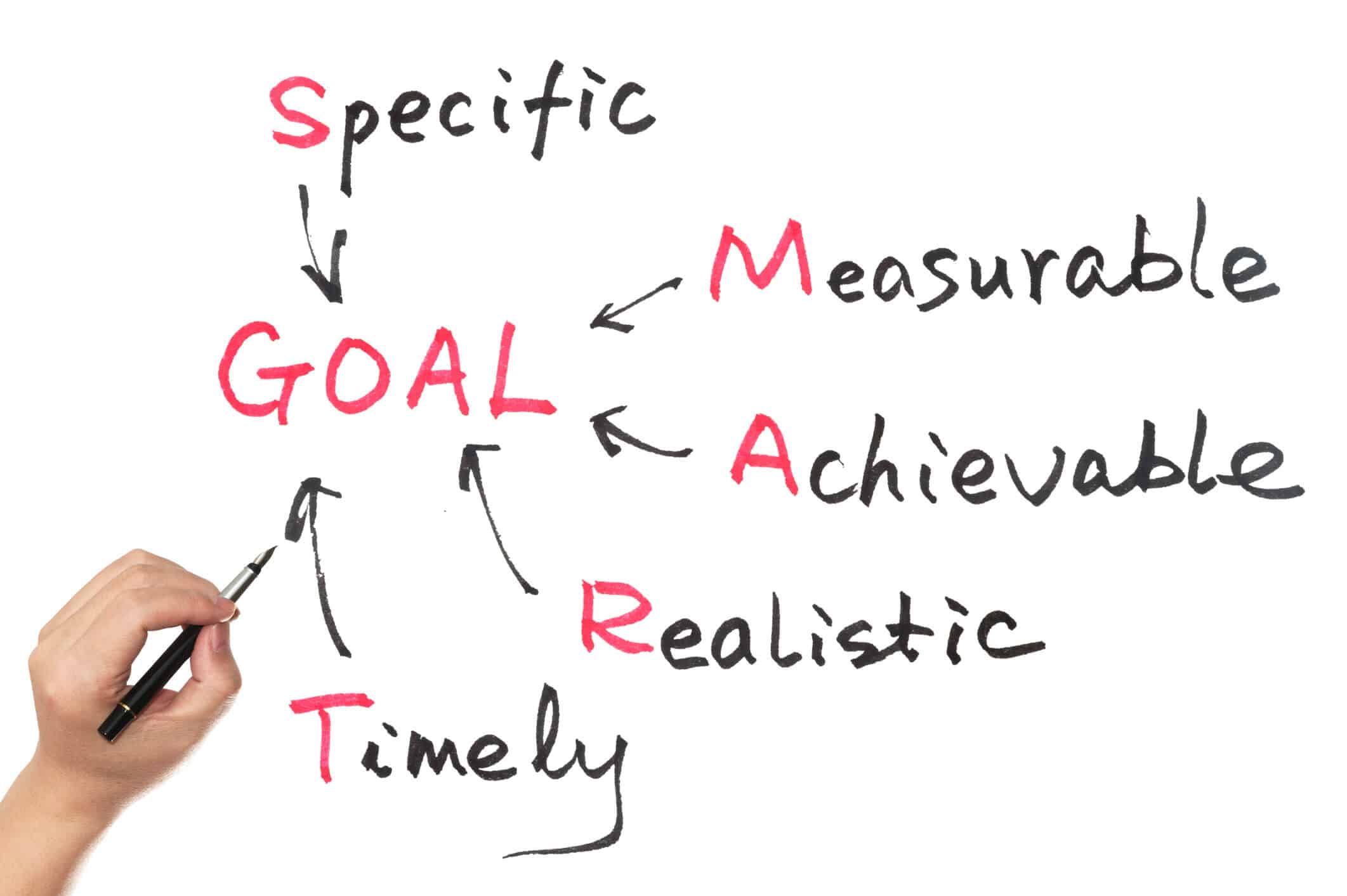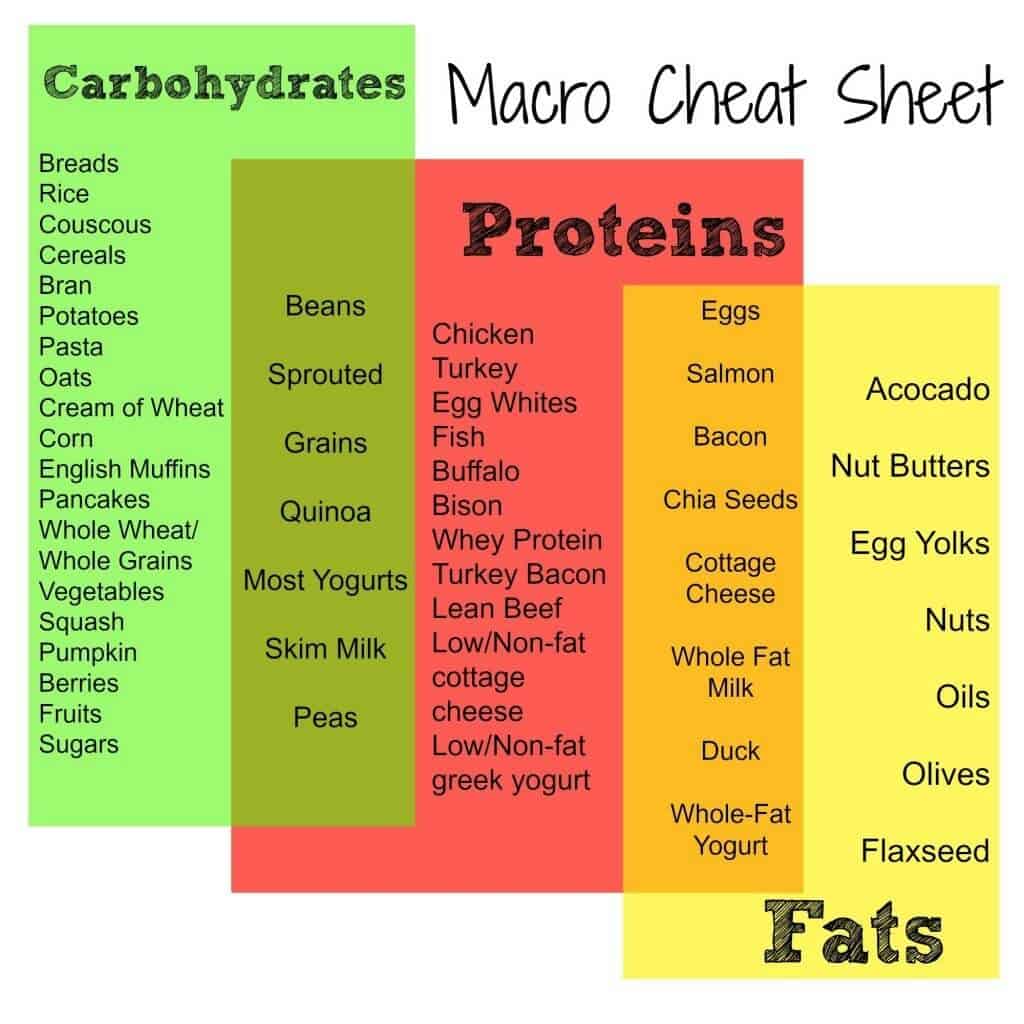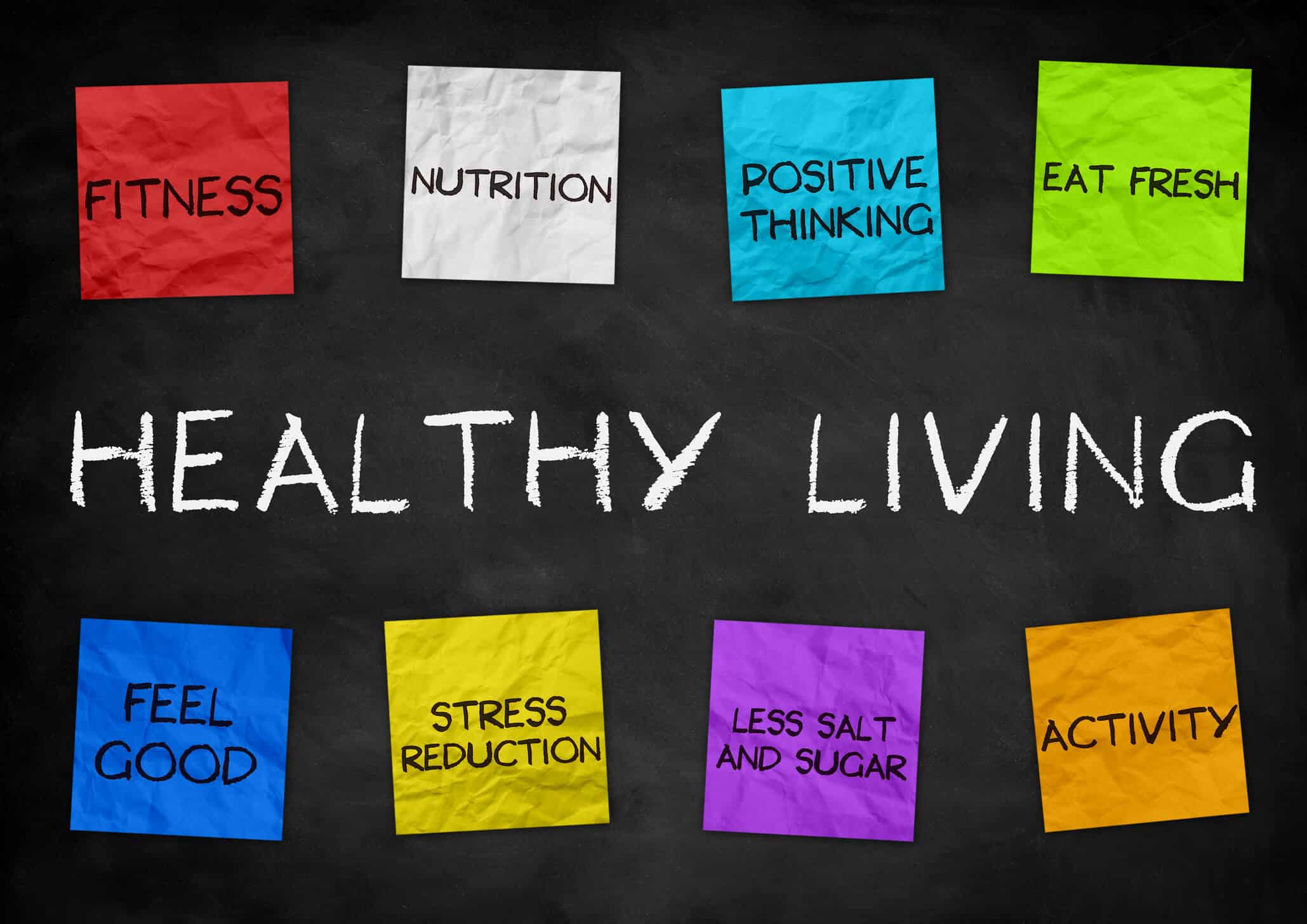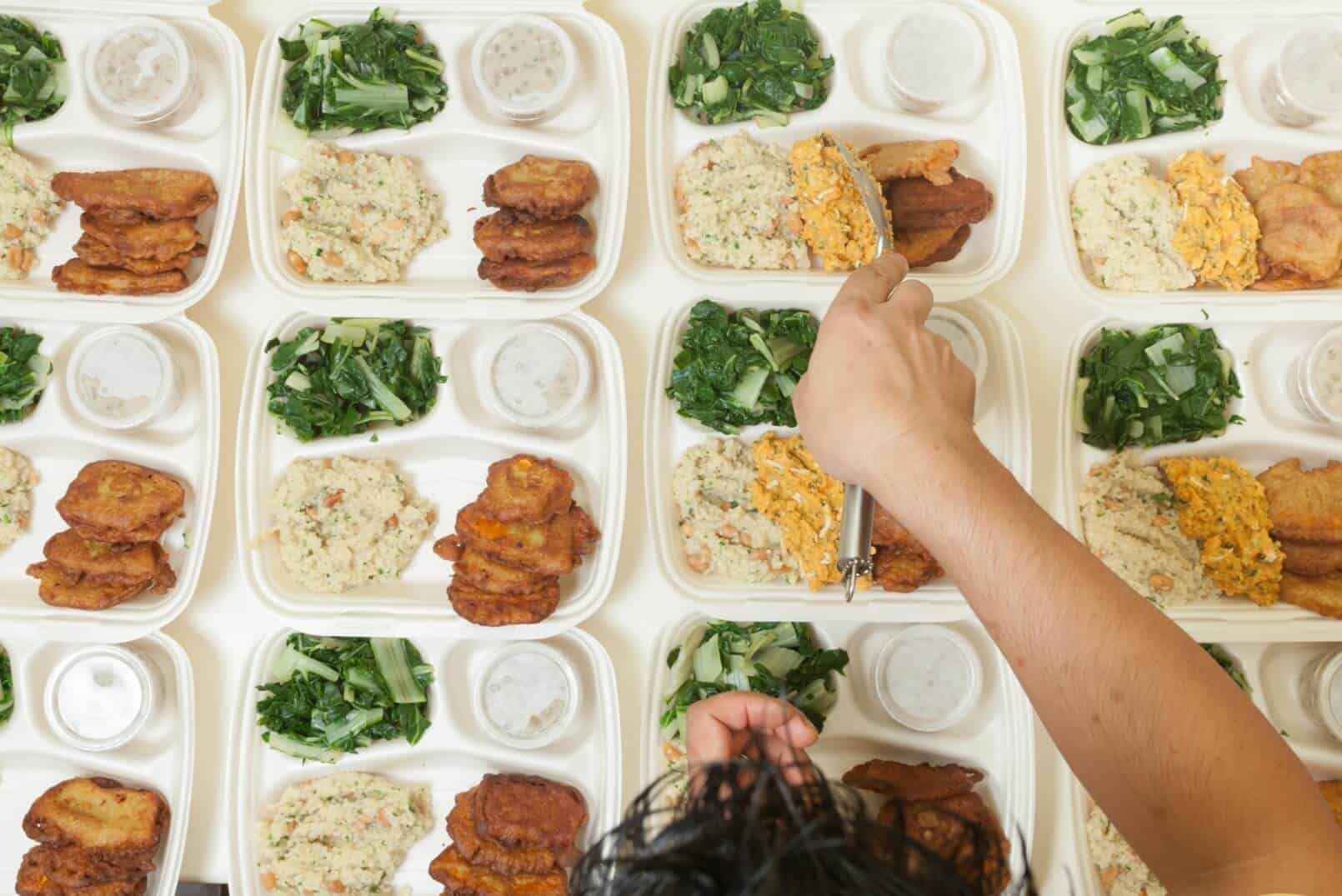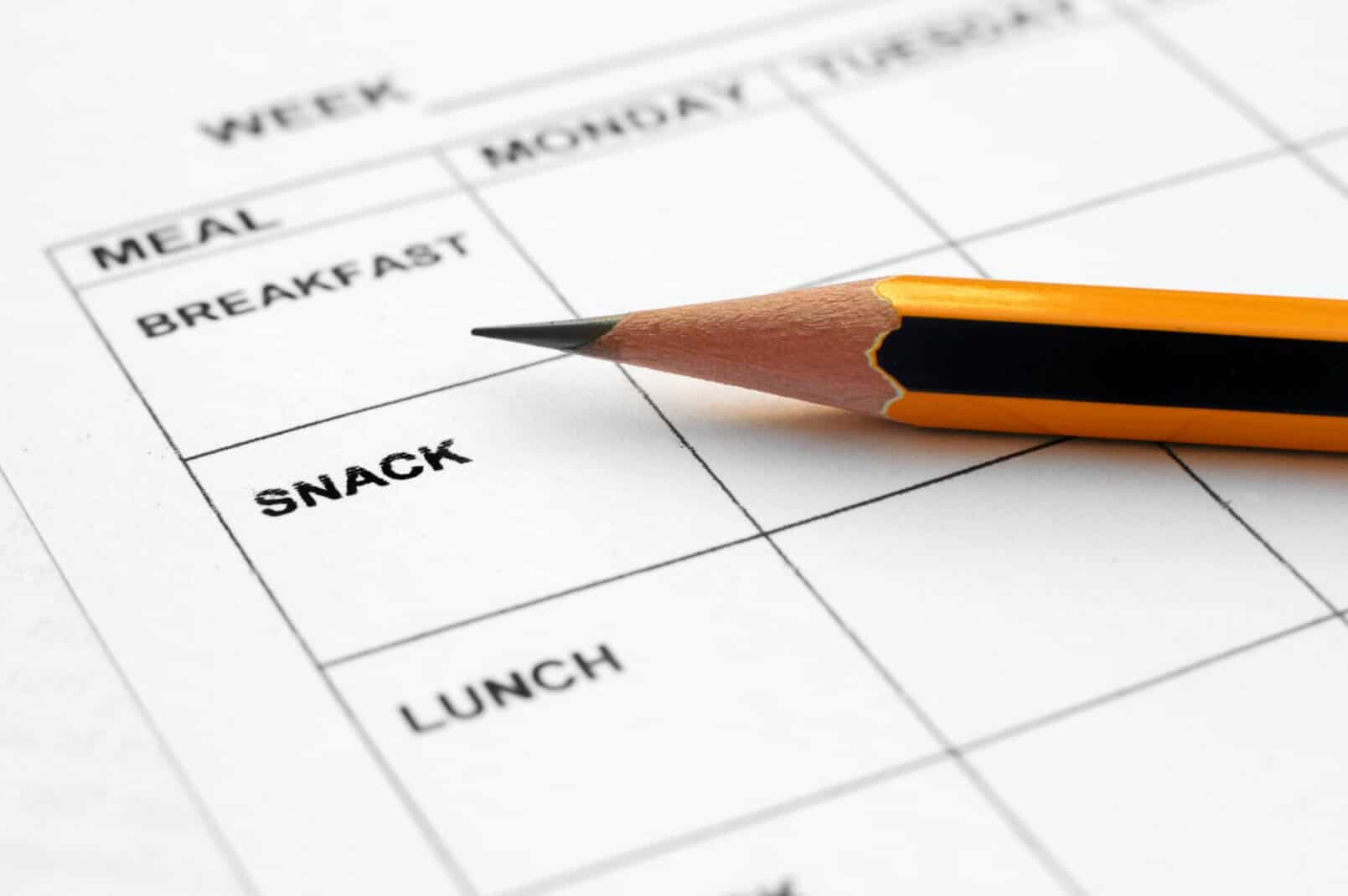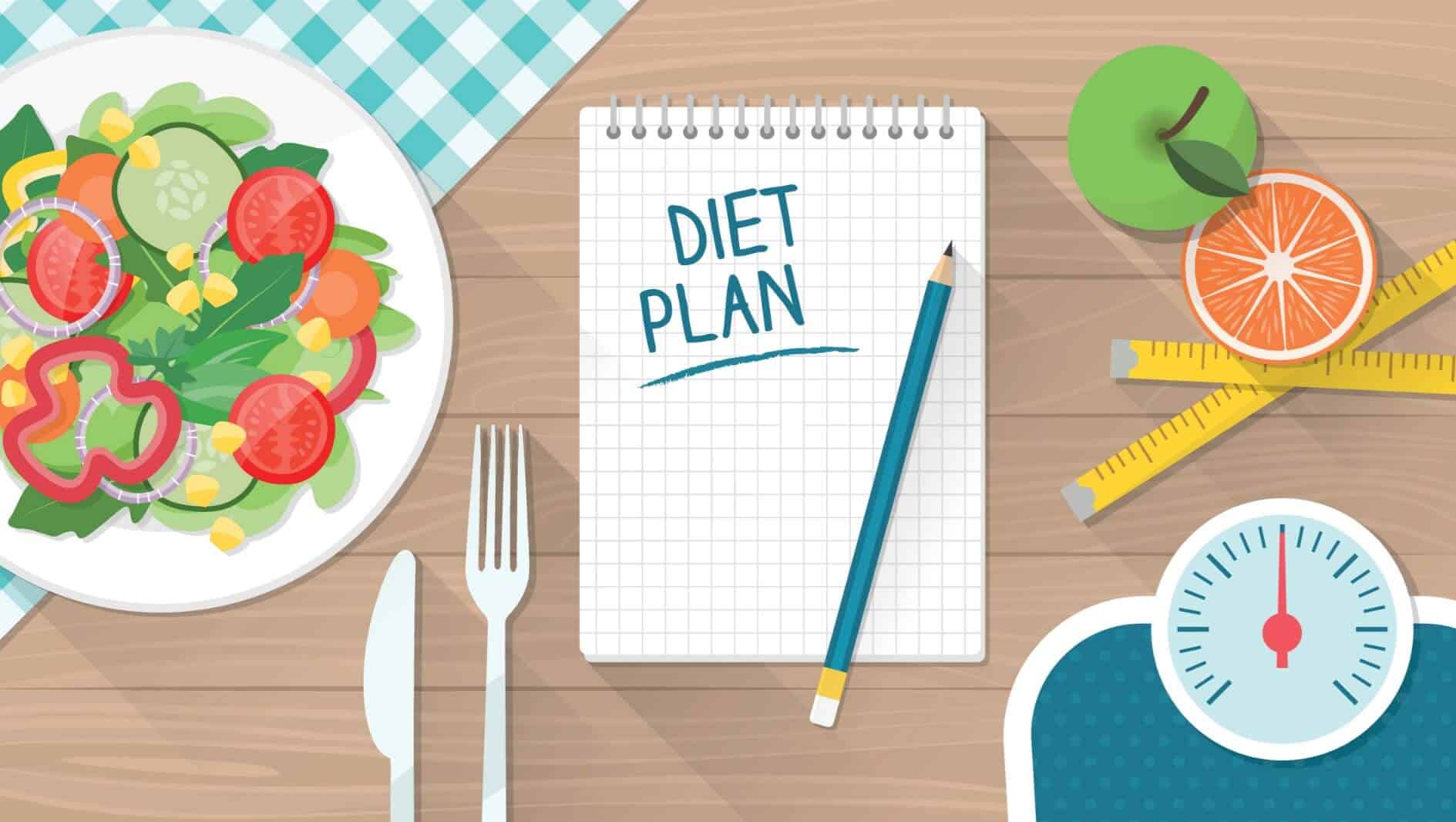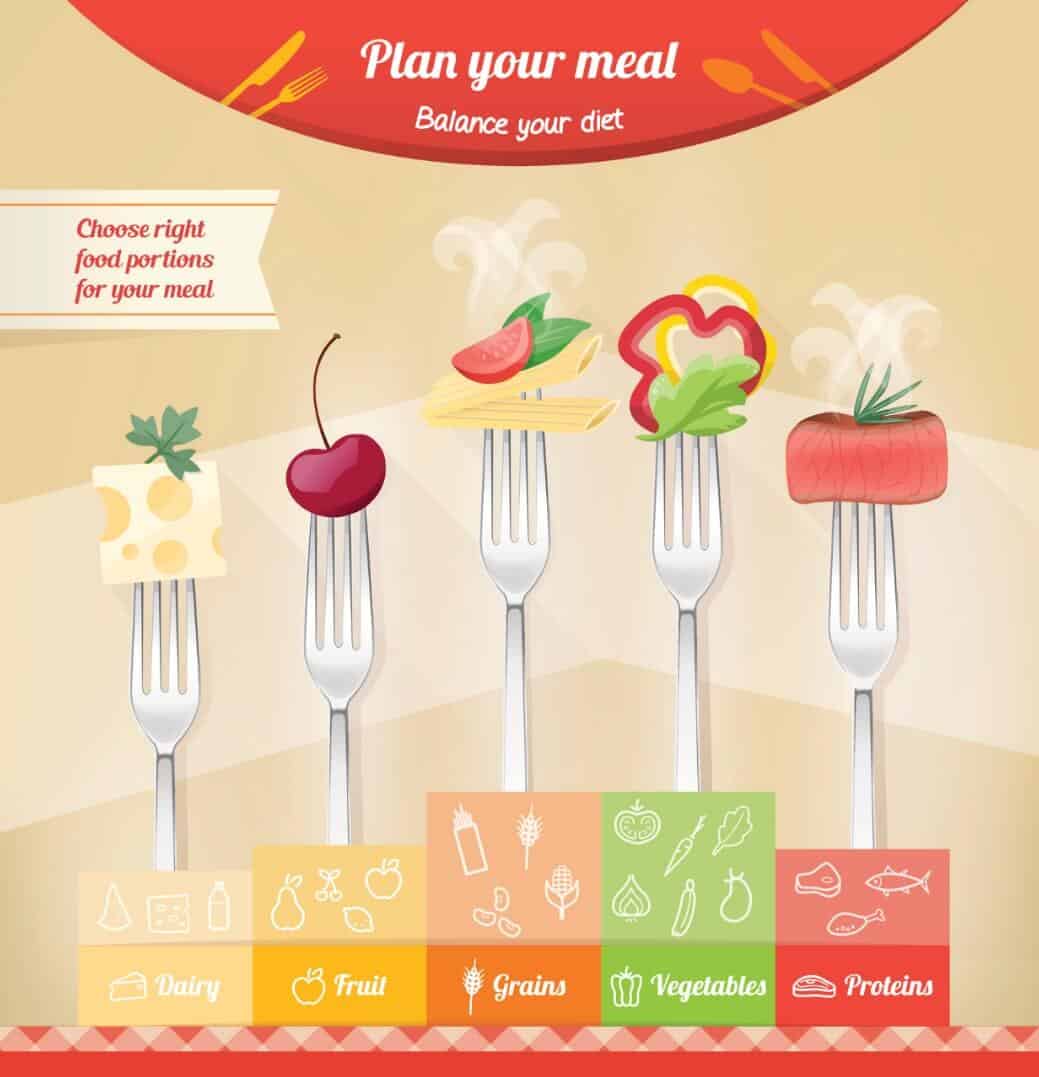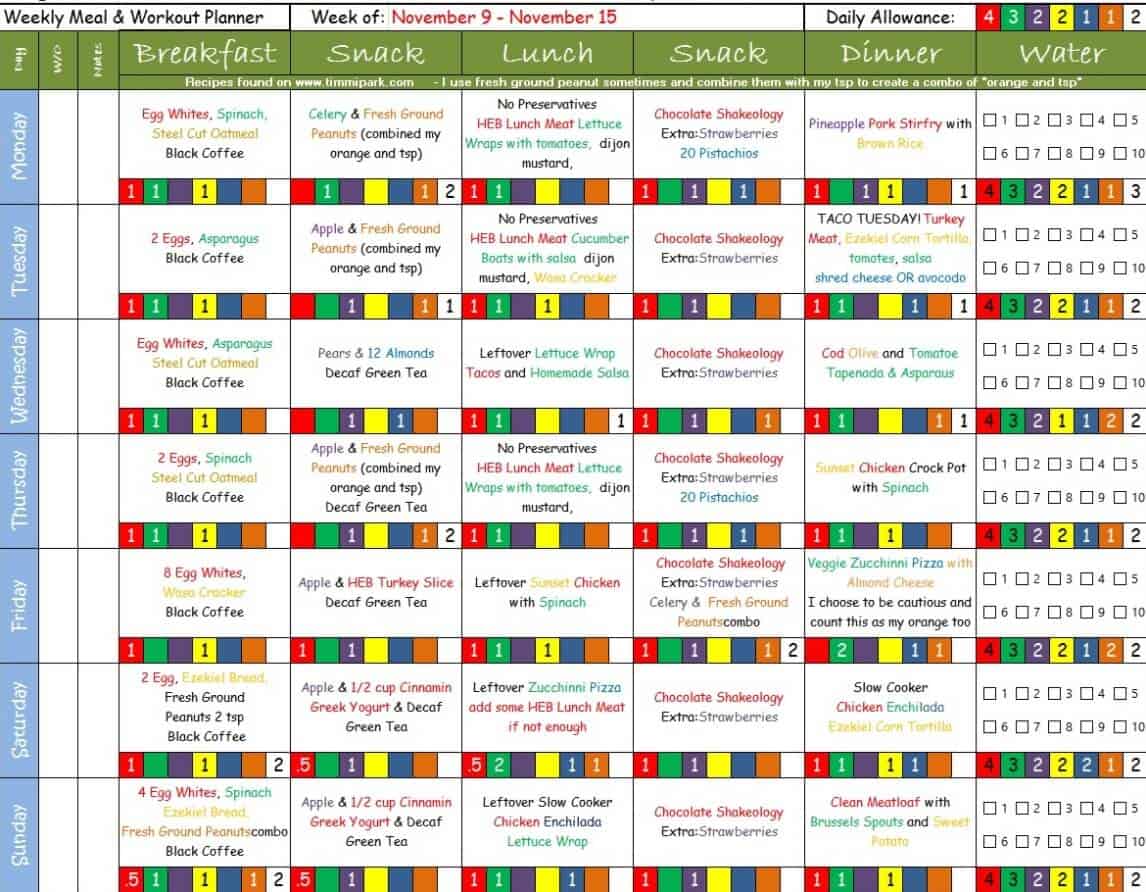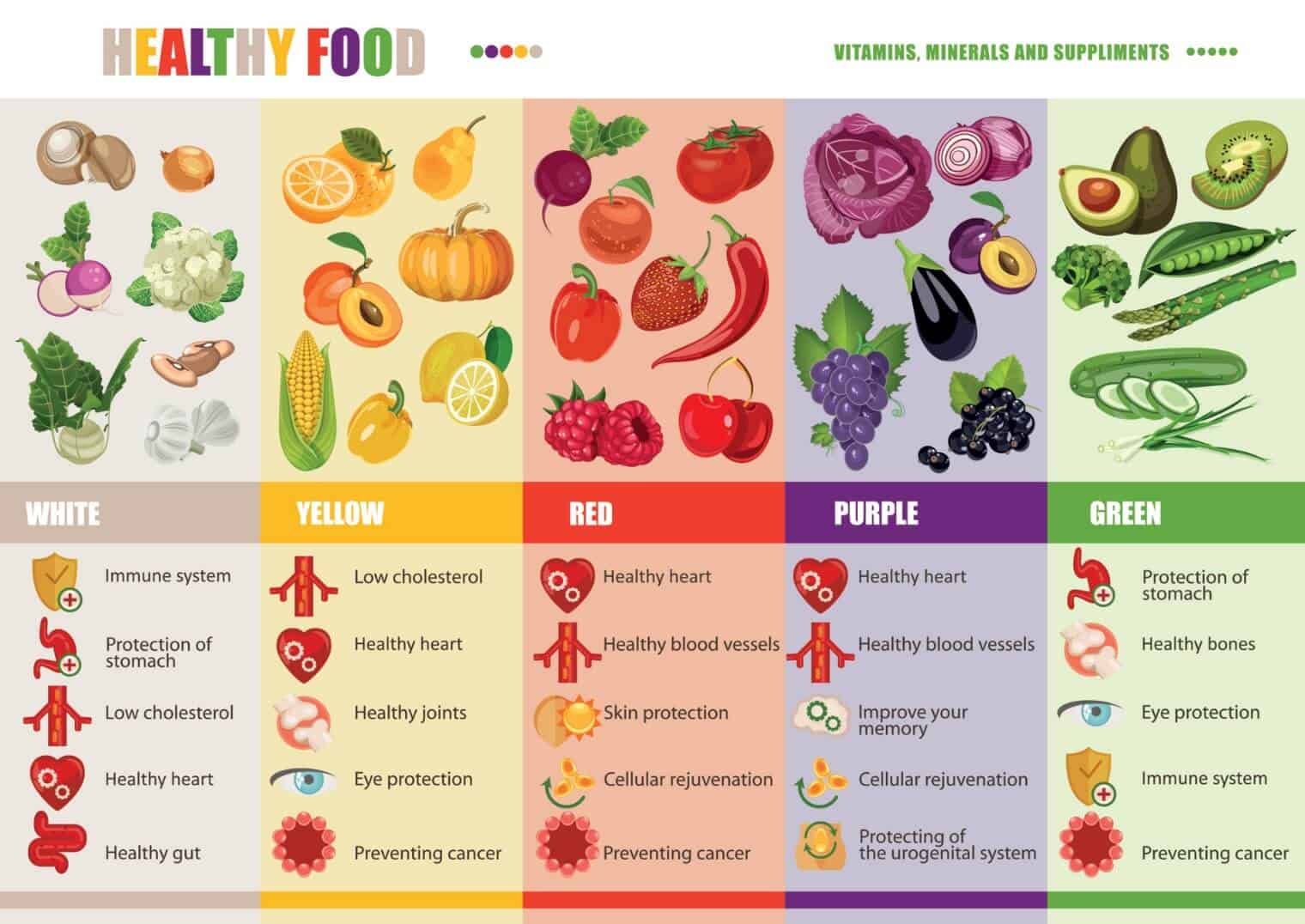What comes to mind when you hear the words ‘meal planning’?
Do you groan, thinking of all the time that you’ll have to put in? Do you cringe at the thought of trying to figure out what to prepare and when? Or, maybe you get a sense of excitement as you love tending to finer details and planning things out.
Whatever the case, if you’ve made it your personal mission to succeed with your nutrition program and weight loss or management goals, meal planning is one thing you simply cannot forgo.
As the saying goes, “If you fail to plan, you plain to fail.”
Do you want to be failing at your diet plan? I didn’t think so. Let’s go over everything you need to know to successfully go about your meal planning and see optimal results.
Why Meal Plan?
First, let’s discuss why you should meal plan in the first place. I mean, is it really worth the time? Can’t you just focus on eating the right foods and ‘wing it’ from there?
In a word, no. The reason being that if you truly want to ensure that you get results from your weight loss diet plan, you need to be regulating how many calories you’re consuming. It’s really as simple as that. You can eat 100% all healthy foods with your diet plan but if you aren’t taking in the right amount of food, you’re setting yourself up for failure. Calories in versus calories out will dictate which direction your bodyweight moves, so this is one thing that you’ll want to ensure you’re getting straight.
According to the International Journal of Behavioral Nutrition and Physical Activity, meal planning can help reduce weight and improve diet quality.
If you aren’t planning out your meals, you have no way of regulating how much you are consuming and when.
When you instead leave your food choices up to chance, it is very likely that you will select less than optimal menu options when hunger strikes. Remember, it’s far easier to stick to your diet when you choose what to eat for each meal when you’re feeling satisfied than when cravings are high and blood sugar is low.
“There are so many reasons to incorporate meal planning into your weekly habits. Not only will you save time and money when you plan ahead, but you’ll also end up with a healthier plate, more balanced meals, and more variety throughout the week. As with any new habit, the key is to start small and work your way up to planning multiple meals a week.” states Jessica Levinson, MS, RDN, CDN, Culinary Nutrition Expert and Founder of Small Bites by Jessica.
What’s Involved In Meal Planning?
So what’s all involved in meal planning? What steps do you need to take to ensure it runs smoothly?
Here are the six steps necessary in doing your meal planning each week.
Meal planning can be made easier, as can figuring out how well you’re meeting your macros, by tracking food with an app like Noom.
Step 1: Know Your Calorie Intake And Macros
The first step in successful meal planning is figuring out your target calorie and macronutrient intake. The whole point of meal planning is to guarantee optimal results so without this step in place, you simply won’t be doing that.
There’s a number of online resources you can use to estimate your total calorie requirements and from there, determine your macronutrient targets. There are a number of ways that you can divide up your macros, so don’t feel stuck to one set-up. Experiment over time with your meal planning and figure out what works best for you.
Some people tend to respond best to a higher protein, higher fat diet with lower carbs while others like a moderate protein, higher carb, and moderate fat approach. It’s all about what works with your body and keeps you doing the diet itself.
Step 2: Figure Out Your Meal Frequency
Once you know how many calories and grams of each macro you’ll be eating during the day, the next step is to figure out your meal frequency. Do you plan to eat four meals a day? Six meals a day? Eight meals a day if you’re really ambitious?
The total number of meals will reflect how many calories you are going to eat per meal. Once you know your meal frequency – how many snacks you eat along with main meals, you can then divide up your total calorie intake along with the macros. By the end of this step, you should have a good idea of how many calories and grams of proteins, carbs, and fats you need to eat with each meal to successfully fulfill your diet plan.
This is where food tracking with an app like Noom comes into play. The extensive database of foods is managed by nutritionists who regularly update to include new and exciting foods.
This will now be your ‘blueprint’ so to speak – what you want to follow going forward.
Step 3: Find Recipes/Meal Combo’s You’ll Enjoy
Now comes the fun part! The real meal planning! So you have your nutrient requirements and at this point, it’s time to match that up to foods and recipes.
Let’s say you are eating 300 calories at breakfast and will have 25 grams of protein, 25 grams of carbs, and about 11 grams of fat. Which foods will give you those macros? That is now your new mission.
You might decide to go with a whole egg scrambled with four egg whites and a quarter cup of raw oatmeal, mixed with a little almond milk for example. Or, maybe you are going to plan something more elaborate.
This is the part where you get to be creative and figure out what you’ll eat specifically for each meal. You may want to hunt down some recipes online and figure out which ones will work well given your requirements. Do keep in mind if you have your heart set on one recipe in particular and it’s not quite fitting your macros, you can shuffle things around a bit, adding macros from another meal or adjusting accordingly.
You will find that this step usually takes the longest. This will especially be the case if you’re trying to find recipes to go with the meal plan. If you’re just eating basic foods – grilled chicken breast, baked sweet potatoes, avocado and steamed broccoli for instance, it becomes much easier to simply adjust serving sizes to meet the macros you have set.
For this reason, many people who are doing strict meal planning will tend to gravitate to eating the same few meals over and over again. You might want to come up with two different breakfast options for instance and just rotate back and forth between them so you don’t get too bored. This will save you a great deal of time over the long run with meal planning as your meals will already be planned out for you.
Write down what you plan to eat for each meal so it’s on paper.
Write down what you plan to eat for each meal, so it’s on paper or, better yet, track the foods you eat with a clinically-proven weight-loss app like Noom.
Step 4: Get Shopping
Next it’s time to grocery shop. In order to carry out this plan, you need to have the food items in the house with you. When life gets busy, you’ll find making it to the grocery store becomes harder and harder so do your best to get as many of the items you require in one trip.
Plan for a large grocery shopping trip on Saturday or Sunday for instance and then just stop off quickly during the week to pick up any fresh produce or other items you may need.
It’s also helpful to stock up on non-perishable items once per month in large quantities as that will also make weekly grocery shopping a lot easier.
Step 5: Prep As Much As Possible At Once
Upon coming home from grocery shopping, next comes meal prep. You might do this on the same day as you went grocery shopping or you may choose to do it on a different day altogether. Do whatever is easiest for you.
Your mission here is to prep as much of the meals as possible in one go. This way, you just have to reach into the fridge and your food is there waiting for you.
Invest in some good quality Tupperware containers for this. You can portion out your food/recipes once cooked and then place it in the Tupperware containers so you have these individual meals there waiting for you.
Step 6: Relax And Execute
Finally, once all of this is done, you just have to relax and execute. Do your best to stick to your meal plan throughout the coming week, eating the meals that you have planned and scheduled.
If you find that this is just a little too strict for you, you might make one meal every three or four days a freebie meal where you can eat whatever it is that you want (within reason) in a healthy portion size. This gives you a bit more freedom and if 90% of your plan is pre-arranged, it shouldn’t throw your results off that much.
Remember that with any meal plan, it’s very much about figuring out what works best for you. No meal plan is going to work if you don’t do it. So, do whatever it takes to increase your adherence and ensure that you stick to the plan at all times.
When times get hard, it’s often a community of support that can help keep you on track. That’s what you get with Noom – along with some amazing food tracking to keep your macros and calories in check.
Tips To Make Meal Planning Easier
Now that you have the basic steps in place to ensure meal planning gets done, what can you do to make things easier on you? Here are a few tips to know and remember.
Buy pre-chopped vegetables
One element of meal prep and planning that most people hate is cutting up their vegetables. This is probably the number one stated reason most people aren’t getting in the produce they really should be eating.
The good news? You can easily get around this. Simply buy pre-chopped vegetables whenever you can. Yes, you will usually pay a premium for this, but ask yourself, isn’t your health worth it?
If it really comes down to eating vegetables or not, it’s worth the extra money. Sometimes you just don’t have time to chop those vegetables up and in those cases, having these on hand is a life saver.
Add flavor with herbs and spices
Boredom is something that many people experience as they go about their meal planning and it’s simply because it’s easier to eat the same meals over and over again. And while this may be easier, that doesn’t mean it’s optimal.
You’ll get tired of the same meal eaten every single day. Therefore, you need to look for ways to change it up a bit. Herbs and spices provide the perfect opportunity. By simply sprinkling a new herb onto your vegetables, you can completely change their taste without adding any fat or calories. This makes it easy to avoid having to rework your entire meal around to ensure that it hits the macros that you have set.
Plus, many herbs offer additional health benefits, so this is yet another excellent reason to get them in.
Consider ready-to-eat options
Another option you may want to look into to make meal planning easier is ready to eat options. This applies to protein as well as some side dishes as well. Visit the deli and see what they have to offer. If the ingredients are listed on the package along with the stats and you can see they check out as applying to your meal plan and healthy, there’s no reason you can’t go with those items.
If it saves you cooking time, that’s great.
Use MyFitnessPal
It’s also a great idea to get into the habit of using MyFitnessPal. This app makes it easy to track what you’re eating. Plus is shows how many calories and grams of each macro will be in that meal.
For the meal planning stage where you are figuring out what exactly to eat in each meal, this can simplify the process and make it move along much quicker.
Write it into your schedule
Finally, write down meal planning and prep into your schedule.
Figure out a time each week that works well for you to plan out your menu items, get groceries, and prep your food each week.
Noom‘s food database is packed with ready-to-eat meals complete with all nutritional information, so you don’t have to wonder what you’re eating and if it fits into your new health goals.
Once you know this time, write it down. Don’t let anything crowd it out. Meal planning really can make or break the results you see, so it’s not something you want to be taking lightly.
So there you have your complete guide to meal planning. While it may seem a little intimidating at first, once you get into the swing of things, you’ll find it’s not that bad at all and soon, it just becomes second nature. Plus, when you see the results it brings you, you definitely won’t think twice about not doing it again.
Meal Planning and Calorie Counting
Planning your meals of time is the best way to monitor your caloric intake and ensure that you have a healthy, balanced diet. Your diet should be relatively free of fast foods and convenience foods, but it’s not always easy to think of meal planning ideas.
If you need a little help, many online sources are available, such as Save The Food, Food Network, 100 Days of Real Food, and many others.
Healthy meal plans will consist of fruits and vegetables, whole grains, lean proteins, and dairy, which can be modified somewhat to allow for food sensitivities, personal preferences, and dietary restrictions.
Planning meals ahead of time saves money as well. Preparing food from fresh ingredients is the most cost-effective way to eat, in addition to being the healthiest. Planning allows you to take advantage of seasonal specials and buy in larger quantities for the week.
Planning also helps you to control your cravings, so you’re less tempted to stop for ice cream or at the local bakery.
These services also include an approximate calorie count for each dish, which is very helpful when trying to control your caloric intake.
Meal Planning for Weight Loss
Meal planning for weight loss is essential if you are to meet your weight loss goals.
For a more accurate calorie count, Noom works with nutritionists to ensure a complete, vast database of foods and ready-to-eat meals.
By the end of a long day at work, the last thing you’ll feel like doing is deciding what you’re going to have for dinner that night.
It becomes very easy to succumb to the temptation of quick and easy fast food instead.
Planning your meals will ensure that you have all the necessary ingredients on hand for all your meals, as well as some pop-in-the-oven frozen dinners in the freezer for emergencies. Planning will help you avoid feelings of deprivation and hunger and you’ll be able to reach your weight loss goals more quickly.
You’ll also know how many calories you’re consuming on a daily basis. Here are samples of fast and easy meal plan from Prevention.com.
Meal Plan for Muscle Gain
Meal plans are not only for those who want to lose weight. Planning ahead is essential for those who want to increase their muscle mass while reducing their BMI, or body mass index. A cell phone app can be invaluable for achieving your meal plan weight loss muscle gain goals.
Muscle and Fitness has a meal plan that will help reduce BMI quickly; it’s designed similarly to a competition diet. Bodybuilding and muscle-building diets are based on eating several small meals daily, so meal planning is essential for those who embark on one of these regimens.
Meal Plan for Vegans
Vegans have special dietary needs and can become nutritionally deficient if meals aren’t properly planned, particularly for those vegans who want to lose weight.
Minerals and amino acids that would normally be obtained from animal products must be obtained from other sources, so a grocery list is essential.
Eating Well is one of many sites with meal plans that can be adapted for vegans and weight loss as well as for calorie reduction.
Meal plan weight loss vegan style is possible and planning meals is an integral part of this process. Here’s a 21-day vegan meal plan from The Physicians Committee.
Meal Plan Weight Loss Vegetarian
Similar to vegans, vegetarians have special dietary needs and must get some amino acids and minerals from non-animal sources.
Most vegetarian recipes are high in fiber, which is very advantageous for those who want to lose weight.
Several online resources are available like Eating Well, in addition to several cell phone apps, that can help the vegetarian maintain a balanced diet while achieving his or her weight loss goals.
For those who have children, maintaining a vegetarian diet can be difficult.
Fortunately, some markets offer vegetarian-style child-friendly food such as chicken nuggets made from tofu, and vegetarian hamburgers.
Planning your meals will greatly facilitate your meal plan weight loss vegetarian style endeavors.
Did you know apps like Noom can give you all the nutritional information you need from vegan and vegetarian foods? Simply search for the food and voila, you have all the macros, vitamins, and minerals therein.
Meal Planning for Weight Loss on a Budget
If you’re on a tight budget, you know that meal planning is essential to stretch your dollars as far as possible.
Whether you have special dietary needs, want to lose weight, build muscle, or have another goal in mind, meal planning for weight loss on a budget will help you reach all of your goals.
It’s unfortunate that unhealthy foods are often cheaper than healthy foods, but it’s a fact of life.
However, the long-term costs of the unhealthy foods make them much more expensive in the end, according to Nerd Fitness.
When you’re meal planning for weight loss on a budget, aim for the following types of food:
- Nutrient-dense foods
- Foods with high nutritional value that are calorie-appropriate for your goals
- Foods that offer good calorie value, such as whole grain bread instead of white
- Frozen fruits and vegetables for those that aren’t available fresh
Meal Planning and Gluten-Free Options
Those who are on a gluten-free diet, whether by choice or of necessity, may think that losing weight isn’t possible; meal planning can make it a reality.
Gluten is abundant in the grocery store and sometimes it’s well hidden in words such as several forms of malt, brewer’s yeast, dextrin, brown rice syrup, and more. It’s also frequently hidden in vegetarian and vegan foods.
For those who are on a gluten-free diet, a meal plan is essential. Several cell phone apps are available that specialize in gluten-free living and weight loss.
Many websites are devoted to those who live gluten-free. A meal plan for weight loss gluten-free is as close as your cell phone or your computer. Here’s a gluten-free meal plan from Celiac Disease Foundation (CDF)
Nutritionist Meal Plans for Weight Loss
A nutritionist meal plan weight loss regimen will include foods from nutrient-dense foods that use calories efficiently.
It won’t include foods such as cookies, chips, sodas, and other nutritionally-empty but high-calorie foods. It won’t include the diet versions of these foods either because they’re not healthy.
It will include lots of fresh fruits and vegetables, or frozen ones if fresh aren’t available, whole grains, and lean meats for those who aren’t vegan or vegetarian.
Meal planning can provide the best nutrition available for your diet and reprogram your taste buds to prefer healthy foods over fast food, convenience food, and junk food.
Health.com has created a 1,400-Calorie meal plan to boost metabolism.
Your body will thank you for this and you’ll see a dramatic improvement in the way you look and feel.
Meal Planning – Your Guide To Healthy Meal Planning Questions & Answers
- Recent:
- Balance: Create meals that include all of the major food groups in the correct proportions for optimal nutrition.
- Variety: Mix up your meals by using new ingredients, trying different cooking techniques, and exploring different cultures’ recipes.
- Moderation: Don’t overindulge with large portion sizes or too many unhealthy ingredients – strive for portion control and nutritious ingredients.
- Planning Ahead: Creating a weekly meal plan before shopping can help save time and money, as well as ensure that you have the necessary ingredients on hand when you need them.
- Timing: Eating regular, balanced meals throughout the day helps to keep your energy levels steady while preventing overeating and unhealthy snacking habits

Shannon Clark, B.S., C.P.T., holds a degree in Exercise Science from the University of Alberta, where she specialized in Sports Performance and Psychology. In addition to her degree, she is an AFLCA certified personal trainer and has been working in the field for over 12 years now, helping others lose weight, build muscle, and improve their athletic performance. She’s worked with people of all ages and helped them find the right fitness path for themselves. Shannon has been published in Oxygen Magazine, Bodybuilding.com, Lifehack.org, T-Nation.com, Leankitchenqueen.com, Sheknows.com and more.

